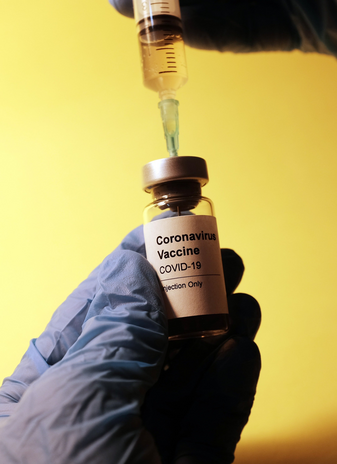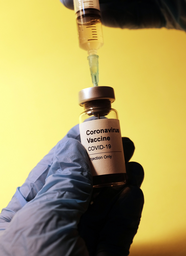As of April 15th, all adults sixteen and older are eligible to get a COVID-19 vaccine. This is super exciting news! A little more than a year after the first case of COVID occurred in America, we are able to start vaccinating our population. This is also super unusual; most vaccine trials take several years to complete, with extensive three-phase safety and efficacy trials to finish.
Thanks to the FDA’s Emergency Use Authorization and several plans to help the vaccines in trial go through the process more quickly, companies have already been able to put their inventions on the shelves. Emergency Use Authorization means that the vaccines have been proven to be adequately effective and safe, and with further testing, these vaccines can be approved for long-term use.
According to USA Today as of right now, over 40% of the United States population is at least partially vaccinated. That may not seem like much, but we are on a steady incline; if we continue at the current rate of vaccination (1.49 million people everyday), almost 75% of the American population will be partially vaccinated by the Fourth of July.
Due to the recent extension of vaccines to young adults, you are probably now eligible to get yours if you haven’t already! However, it’s also important to remember that getting fully vaccinated does not mean that you can just do whatever you want and stop wearing a mask in public.
First, you are not considered fully vaccinated until two weeks after your final dose of the vaccine. This means that you still have to be extra careful between your first and second dose, and even for a while after the last one. Remember to take care of yourself, too: watch your body for any extreme symptoms and report them if they start to cause you distress.
Next, there are several things you are able to do now that you’re vaccinated! You can now hang out indoors without a mask with fellow vaccinated people or with one unvaccinated household not at risk for severe symptoms. Additionally, you can now travel domestically and internationally without having to test or quarantine. You can even hang out with someone who has COVID, since you now have a vaccine to protect you!
Of course, there are also some things you are still unable to do, even though you’ve been fully vaccinated. It’s really important that you continue to keep others safe and take precautions: keep wearing a mask in public, staying six feet apart, and don’t gather in crowded areas. You should avoid large and medium gatherings, and continue to protect others abroad if you choose to travel. And of course, make sure you have minimum contact with people in higher risk groups, like the elderly or people with pre-existing conditions. Additionally, don’t forget to abide by any regulations in public places: if a store asks you to wear a mask while inside the building, do so!
Lastly, it’s important to remember that COVID-19 is a new and unfamiliar virus. It’s not like influenza, where we have a good idea of the treatments and long-term safety precautions. Research on what you can and cannot do with a vaccine is still in progress; it’ll be a long time before we can extensively document how effective the vaccines are at protecting ourselves and those around us. From what we know now, we can tell that getting a COVID vaccine is highly effective at least in the short-term — everyone should get vaccinated as soon as possible, but that doesn’t mean you should stop taking precautions. So, be responsible and do your part: get vaccinated and stay safe!


